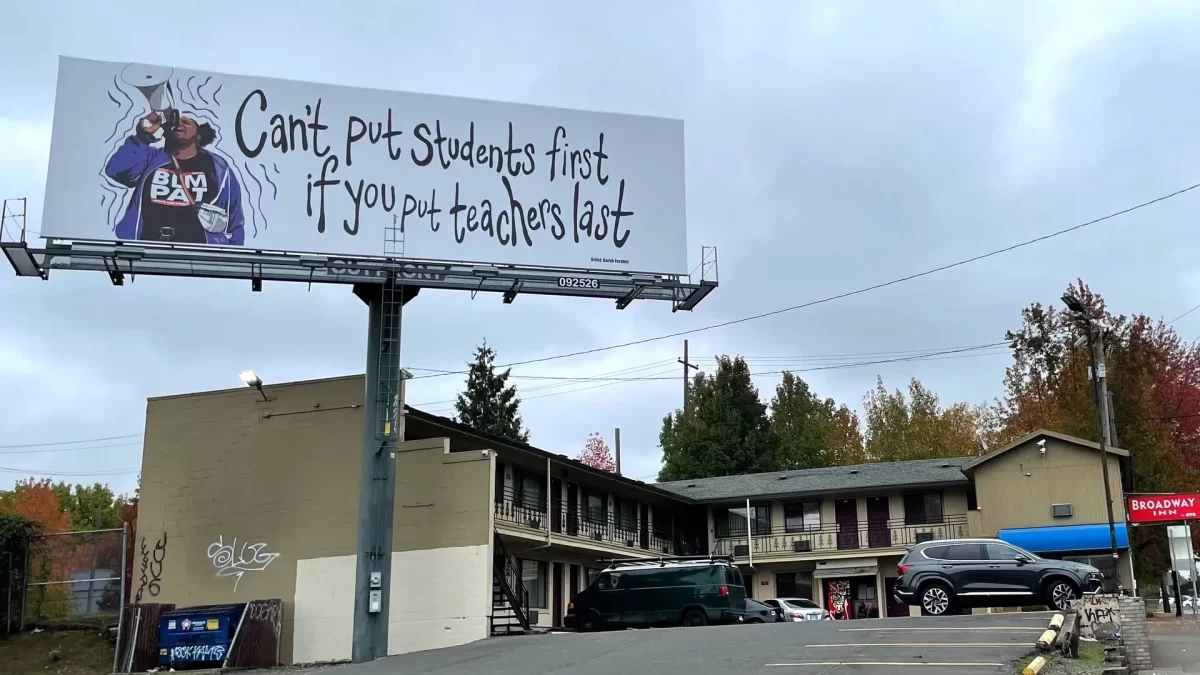Portland Public Schools (PPS) are expected to close their doors on Wednesday, November 1st as Portland Association of Teachers members prepare to strike. There are currently 86 schools in the PPS district with nearly 47,000 students. This will be the first ever teacher strike in the history of the district.
Katie Madden, a teacher in the PPS district says teachers in the district want to have smaller class sizes, more planning time for elementary schools, and better pay. She explained that after Covid-19 and the inflation, their pay stayed stagnant so they’re actually being paid less than they were just 3 years ago. PPS has only agreed to pay a 4% increase for the 8% inflation of the first year after Covid-19. “We’re asking for the bare minimum, for what is deserved in pay.” With what they say is a lack of support in classrooms, teachers are hoping for more educational assistants who will help be that 1 on 1 support with students with 30 or more students in a classroom. Katie says she hopes “students can succeed and not slip through the cracks. The more support that we can give to our teachers the more support that we’re actually giving to our students, because the better standards a teacher has to teach by and giving them more support allows teachers to be more motivated to be engaged with their students. Most of the things that we’re asking for are directly helping our students.”
PPS uses traditional bargaining vs. interest-based bargaining which NCSD (North Clackamas School District) operates under. She doesn’t believe that the way PPS bargains is necessarily wrong but believes that since the PPS district is unwilling to shift its own opinions and views, making a shift towards interest-based bargaining could actually be something that could potentially help the district as a whole.
Equitable grading, also known as proficiency grading, is a grading policy on a 1-4 scale instead of a 0-100 scale. This grading policy is a new grading system that PPS is using this school year. policy doesn’t take things such as homework, participation or even cheating into account for a student’s grade. Katie believes that equitable grading is a really effective way to help students, stating, “You have to be all in for it to be effective, if you’re doing this grading then you can’t establish assignments the way you would on an A to F scale.” Although she believes that equitable grading can be greatly beneficial to students she doesn’t believe that it’s being executed in a beneficial manner at this point in time. She believes the lack of a penalty for cheating can be positive or negative depending on the reasoning for cheating, stating, “Most students cheat because they don’t understand the curriculum and because they’re not getting the support they need. This goes back to the district not doing enough to ensure that students have enough support to better themselves and to not cheat.”
She believes that even though this grading policy could allow students to slide by in schools it could also allow students who maybe don’t have as positive of a home life at home compared to their peers to follow a path that enables them to be just as successful as those peers. When it comes to racial inequities in schooling she believes that until there is a total reconstruction of our society there will be a need to continue to do things such as equitable grading to support those students who are part of a minority.
PPS Administrators have voiced concern over the strike. Katie stated, “If they want their teachers to come back in and do their job they’re going to have to make those changes, those changes may be difficult for them to handle but what else are they going to do.” She’s planning to follow her peers and stay on strike for as long as she has to see a change, saying, “If it’s multiple weeks then so be it, if it’s multiple months that would be really difficult because I definitely don’t have the money to afford that but I would do it anyway.” She hopes that they can remedy this situation sooner rather than later to avoid harming students’ education.
Teachers, she says, are fed up and want to finally be heard, stating, “This is the one way to really get our voice out there and to be known. I’m happy that people are seeing this even if they’re not all positive reactions. There’s so much positivity that outweighs the negativity and that’s what makes it so worth it.”

